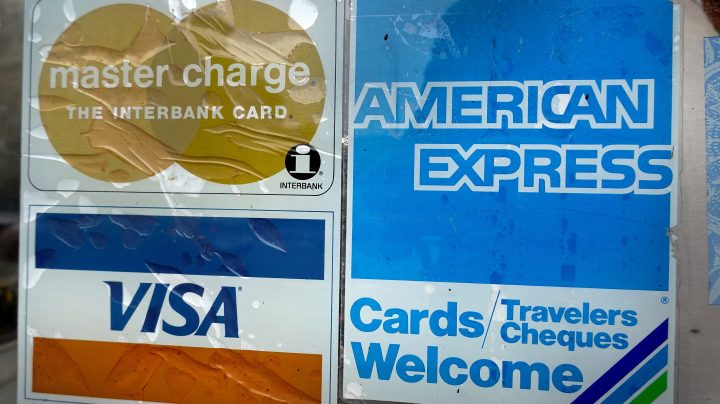
Americans’ use of credit is growing, but slowing

Ken Johnson, 28, has relied on his credit card for the past few years. First, it was to buy things to make home more bearable — like an air purifier and a Roomba. Then, when the Los Angeles resident was able to go out, he wanted to GO OUT — like, in all caps. He gathered with friends in wine bars and nice restaurants.
“Was I responsible? No. But at the time, I thought, ‘It’s $200. What’s the harm?’ And then it was, ‘$200. What’s the harm?’ And then it was, ‘Oh [expletive], this is the harm,’” Johnson said.
Johnson also traveled to be with sick relatives and had some surprise medical bills. He said he ended up with $30,000 in credit card debt and is paying around 20% in annual interest. So, he’s cutting back.
“I’m not buying eggs. And I live five minutes from my workplace, so I’m not buying a lot of gas,” Johnson said.
American consumers, overall, relied more on credit to pay for things last year. In 2022, consumer credit increased 7.8% from the year before, according to new data from the Federal Reserve. That includes nonrevolving credit, like student loans and auto loans, and revolving credit, like what we buy with credit cards.
But in December — a month generally known for credit cards getting a workout — the growth in borrowing slowed.
“It’s striking that people, up until this most recent data, have continued to use credit cards to the extent that they have because the interest rates on credit cards are at record highs,” said economist Nancy Vanden Houten at Oxford Economics.
There is a metaphor for this, of course.
“Until recently, the consumer had been like a race car, going around the track at a pretty good clip,” said David Wessel, who directs the Hutchins Center on Fiscal and Monetary Policy at the Brookings Institution. “People were buying a lot of stuff.”
And because of inflation, all that stuff cost more. Now, Wessel said, consumers see warning signs on the side of the track.
“‘Recession may be ahead.’ ‘Cost of borrowing going up.’ So they’re doing the logical thing, which is being a little more cautious,” he said.
They’re reacting in part to the Federal Reserve raising interest rates to make borrowing more expensive.
“As the cost of credit goes up, you would expect credit growth to slow, but that also may mean consumers get pinched more readily and more quickly,” said Bank of America economist Michael Gapen.
What’s that look like? For some, skipping nice dinners — and not buying eggs.
There’s a lot happening in the world. Through it all, Marketplace is here for you.
You rely on Marketplace to break down the world’s events and tell you how it affects you in a fact-based, approachable way. We rely on your financial support to keep making that possible.
Your donation today powers the independent journalism that you rely on. For just $5/month, you can help sustain Marketplace so we can keep reporting on the things that matter to you.

















